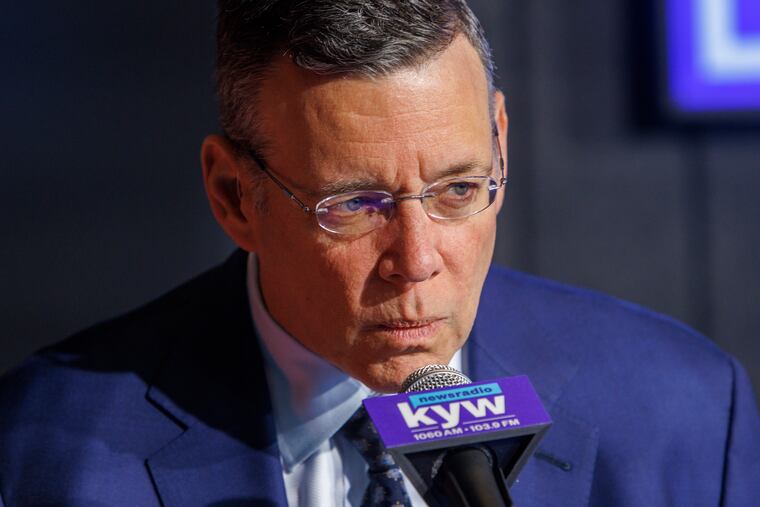Philly’s ethics board is changing the rules at the heart of its fight with the ‘super PAC’ that backed Jeff Brown’s bid for mayor
The most notable change would clarify the rules on what constitutes illegal coordination between candidates and independent expenditure campaigns.

The Philadelphia Board of Ethics is moving to amend city campaign finance regulations in the wake of its botched lawsuit against the “super PAC” that supported Jeff Brown’s unsuccessful campaign in last year’s mayoral election.
The most notable change would clarify what constitutes illegal coordination between candidates and independent expenditure committees, political groups that can raise and spend money in unlimited amounts but are legally required to operate separately from candidates’ campaigns.
That issue was at the center of the legal fight last year between the ethics board, Brown, and the super PAC supporting him.
In its April lawsuit against For a Better Philadelphia, the board accused Brown of improperly coordinating with the PAC and its related nonprofit because he raised money for it in the months before he launched his campaign in late 2022. The suit made waves in the mayor’s race and contributed to the longtime ShopRite proprietor’s fifth-place finish in the primary, which Mayor Cherelle L. Parker won.
» READ MORE: Inside the Board of Ethics’ case against the super PAC supporting mayoral candidate Jeff Brown
Months after the primary, a judge threw out the board’s lawsuit, which Brown said was vindication of his actions in the run-up to the mayor’s race. Last month, he and For a Better Philadelphia filed a lawsuit of their own, accusing the ethics board of conducting a “harassment campaign” to hurt his candidacy.
For a Better Philadelphia won the initial case by arguing that the coordination rules do not apply to candidates-to-be before they launch their campaigns. The board, meanwhile, pointed to a provision in its regulations that says coordination occurs if a campaign or candidate “has solicited funds for or directed funds to the [super PAC] making the expenditure, but only if the solicitation occurred within the 12 months before the election that the expenditure seeks to influence.”
After Philadelphia Court of Common Pleas Judge Joshua Roberts ruled in favor of the super PAC, the board initially planned to appeal the decision to the Commonwealth Court. But it later announced it would instead amend its regulations to clarify its position, forgoing a drawn-out legal fight.
Jordana Greenwald, the board’s general counsel, unveiled the draft regulation amendments at the ethics board meeting Wednesday.
The changes include provisions that directly respond to the circumstances involved in the For a Better Philadelphia dispute, such as: “A coordinated expenditure is an expenditure made by a spender in concert, cooperation, consultation, or collaboration with … an individual who is a candidate at the time of the expenditure, regardless of whether they were a candidate at the time the conduct constituting coordination took place.”
In many ways, the updated regulations reiterate what the board’s stance has been since at least 2018, when it issued an advisory opinion that made clear it considered coordination could occur before future candidates publicly launch their campaign. But the board’s own regulations were muddled because other provisions appeared to indicate that coordination could occur only after someone filed paperwork to launch a campaign or publicly announced a candidacy.
Had the regulatory changes been in place before last year’s elections, Brown’s actions in the run-up to the mayor’s race could have resulted in the largest-ever fine issued by the ethics board. On the other hand, it’s likely that Brown and For a Better Philadelphia would have gone about things differently if the regulations were clearer at that time.
Brown did not respond to a request for comment Wednesday.
The five board members will hold a public hearing on the proposed changes at 1 p.m. March 20 before deciding whether to approve the changes.